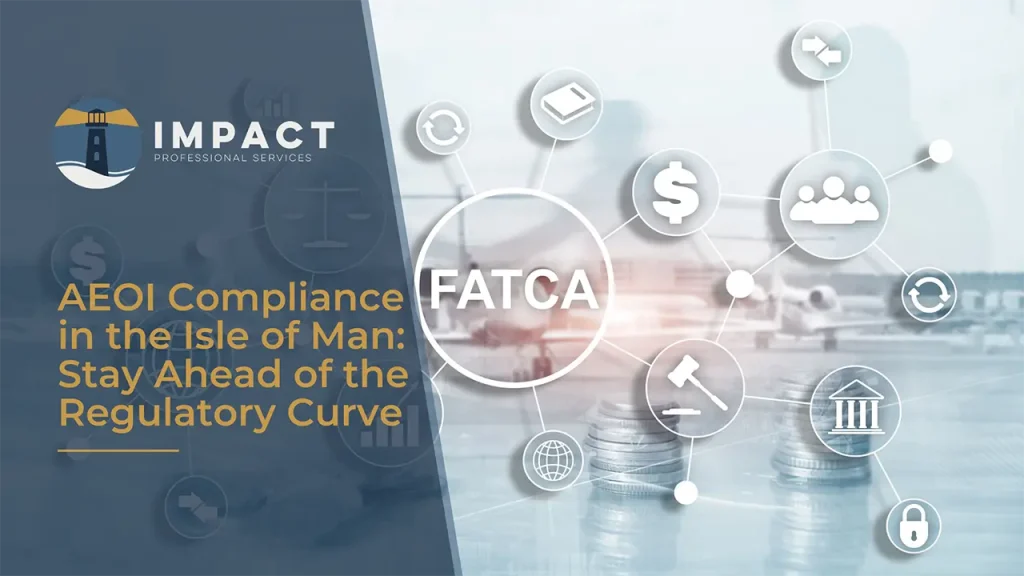
We caught up with FATCA / CRS expert, Richard Parkinson to look at what’s been happening in the Cayman Islands recently, and what the Isle of Man can learn from it.
On the 15th September 2023, the Cayman Islands Department for International Tax Co-operation’s deadline for filing of the new Common Reporting Standard (CRS) Compliance Form passed.
The Form must be completed and filed by all Reporting Financial Institutions (RFIs) and is aimed at ensuring that CRS is implemented effectively across the jurisdiction.
In order to do this, the Form requires that RFIs confirm they have written policies and procedures in place and that these policies and procedures have been followed.
The Form has been implemented as a result of The Organisation for Economic Co-operation and Development Global Forum of Tax Transparency’s monitoring and review of the implementation of CRS, and follows a review of the Cayman Islands legal framework.
This review concluded that the legal framework was consistent with the requirements of the Automatic Exchange of Information (AEOI) terms of reference, and as such the Department for International Tax Cooperation has begun to focus on ensuring that CRS is being implemented effectively by RFIs.
It is worth noting that the Cayman Islands received the highest rating of “On Track” in the Global Forum’s December 2022 report on effectiveness.
What Does This Mean for the Isle of Man?
As far as we are aware, there is no discussion at this time that a similar requirement will be implemented on the Isle of Man.
The introduction of the Form does, however, beg the question: “How many RFIs on the Isle of Man have written policies and procedures pertaining to AEOI?”
The answer is very likely to be “not many”.
The writing of such policies and procedures can be hugely time consuming and onerous, however, this foundational work brings a wealth of benefits.
Not only do these documents act as a valuable resource for complex AEOI activities, but the implementation of the strategy works as a consistent guide for reporting, helping to bridge the understanding of application to the regulations.
Best practice guidance for the development of Policies and Procedures Pertaining to AEOI
The procedures should be (where practical) as factual as possible around the approach an individual RFI takes towards its reporting, from the RFI’s adopted interpretation of classifications, to including reference to any options provided and taken under the guidance issued by the jurisdiction.
As at the time of writing the latest guidance issued by the Isle of Man was updated in January 2022 and can be found here.
The procedures should also link into other relevant procedures of the RFI, for example the requirement to acquire self-certifications, the requirement to hold KYC information, and the requirement to keep accounting records.
To be most effective the procedures should be made in concert with a classification and reporting process. The process should be written as far as possible in layman’s terms so that any RFI staff member can read and understand the process and perform the functions required for AEOI reporting.
It is also essential to ensure that the methods used for recording the classifications and the rationale behind them are made clear and followed.
If and when the competent authority (in this case the Isle of Man Income Tax Division) requires sight of the classifications, it is essential that the classification can be evidenced – along with the rationale used for the classification – and where possible linked back to the financial data that was used to classify the client entity.
The Future of AEOI in the Isle of Man
Whilst the requirements to hold policy and procedures are not currently in force on the Isle of Man, it is almost certain that some form of requirement in this direction will form the future of AEOI, either via unilateral implementation as per the Cayman Islands, or via a further update to CRS in the future.
Either way, it should be seen as best practice for any RFI to have a clear policy surrounding AEOI and to have a good procedure being backed up by a clear process to ensure that reporting is carried out in a clear, and most importantly, consistent manner year after year.
Summary
We understand that creating clear AEOI policies and procedures, supported by a structured process, may pose short-term challenges. However, the long-lasting benefits include:
1. Making the AEOI reporting method clear and easily understandable for all employees, simplifying implementation.
2. Ensuring more precise, dependable, and consistent reporting.
3. Strengthening the Isle of Man’s effectiveness in fulfilling its AEOI responsibilities.
If your Reporting Financial Institution needs AEOI support, don’t hesitate to reach out. Email Impact Professional Services today to get started on the path to better AEOI compliance.

